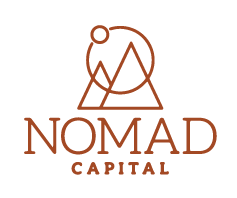Frequently Asked Questions
Investing FAQs:
What is an accredited investor?
An accredited investor is someone who is allowed to invest in certain private investment opportunities that are not available to the general public. The Securities and Exchange Commission (SEC) uses the term to refer to investors who meet certain financial criteria set forth in Regulation D of the Securities Act.
Currently, to qualify as an accredited investor, an individual must have:
- An annual income of $200,000 individually or $300,000 jointly with a spouse, in each of the last two years and an expectation of the same income level in the current year.
- A net worth over $1 million, either alone or together with a spouse, excluding the value of the person’s primary residence.
How do I show that I am an Accredited Investor?
To prove accredited investor status, you may need to provide:
- A letter from a CPA, lawyer, registered broker-dealer, or registered investment advisor
- Bank and brokerage statements
- Evidence of an IRA
- Credit report
- Tax returns or W2 forms
Does Nomad do background or credit checks when a new investor registers with the site?
Not at this time, but it is not uncommon for syndication sponsors to perform background checks on investors
Do you allow international investors?
Yes, but you must be a U.S. citizen
Can I use a Self Directed IRA or other type of IRA to invest?
Yes! We can process investments through a variety of self-directed retirement accounts.
Opportunities:
When will I get my investment back?
That depends on the opportunity you are investing in. Most of our offerings to date have had some sort of development component to them. A typical timeline is 12-month construction and, 12 to 24-month lease-up, with investor distributions beginning sometime in year 2 or 3. We typically target a 5-year cash-out refinance to return the investor’s original investment.
What types of investments does Nomad offer?
Nomad Capital offers both funds and project specific syndications based on the asset and your goals as an investor. Each raise will specify both the asset type and the investment type to ensure you are well informed about the investment you are making.
What is a K-1?
A K-1 is a federal tax document used to report the income, losses, and dividends for a business or financial entity’s partners or an S corporation’s shareholders.
What docs will I receive as an investor and how will I receive them?
Before investing you will receive a PPM (Private Placement Memorandum), an Investor Questionnaire, a Subscription Agreement, and an Operating Agreement.
During the investment, you will receive monthly email updates on the progress and status of the projects, and you will receive an annual K-1 electronically from our investor portal.
Is there an investment minimum?
The typical minimum investment is $50,000.
What are the tax implications of investing with Nomad?
We typically perform cost segregation studies on all of our assets, allowing investors to benefit from bonus and accelerated depreciation.
Is my investment liquid?
Real estate syndications are generally considered illiquid investments. This means that investors’ funds are locked in for a defined period, which can be five years or more. It can be difficult or impossible to exit early, and there may not be a ready market to sell the investment if needed.
Does Nomad invest in their deals?
Not only do the General Partners of Nomad invest in the deals, but they also assume all liability by solely signing on the note. They also invest their own capital into the quality team finding, syndicating, and managing the deals.

